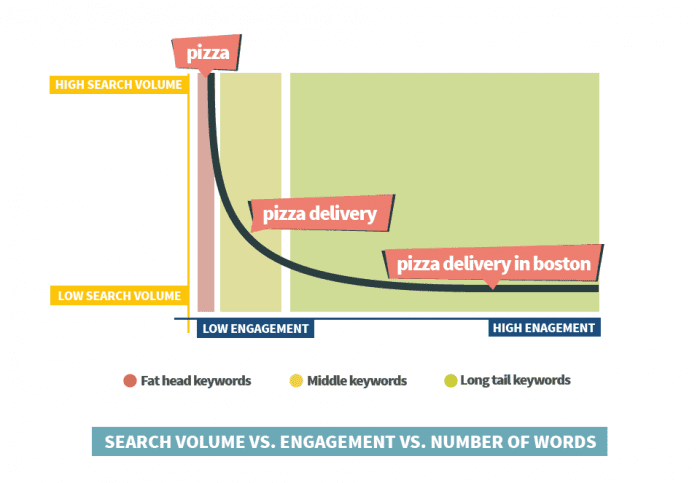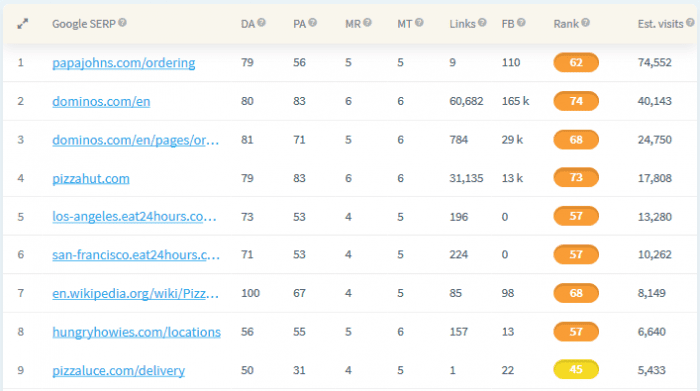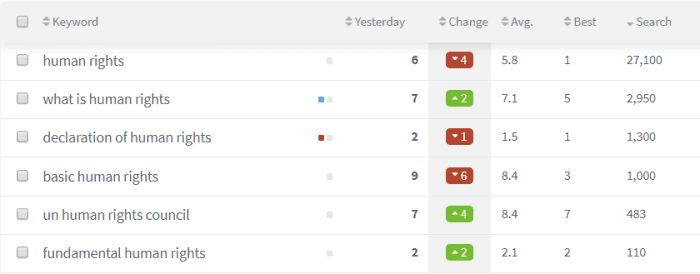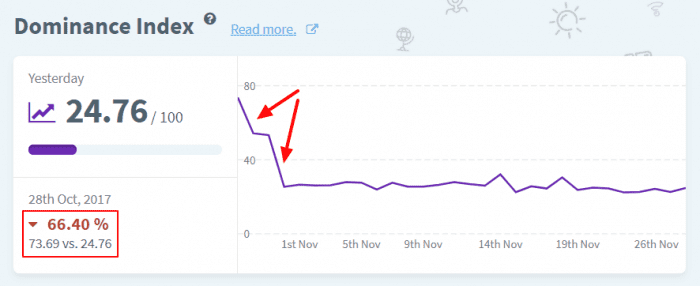Track keyword optimization data that truly matters
We all know the drill. To pick up the most searched keywords, do our best to rank high and pay SEO consultants for achieving the position #1. Well, this isn’t necessarily the worst possible approach. However, in today’s SEO, it doesn’t work that much unless you’re a big corporation and count expenses on search engine optimization in thousands.
So what can you do to pick the “right” keywords, optimize our website for them and track their positions? I’ll give you some tricks & tips how to get the best of both keyword optimization and rank tracking and I’ll show you an example in a short case study.
Download our Premium Resource – Successful SEO guide
Our comprehensive guide to Search Engine Optimisation best practices isn't just for SEOs, the clear explanations mean that it can be used by marketers to ask the right questions to boost their SEO.
Access the Successful SEO guide
Keyword research
Before we start tracking our positions, we need to do keyword research and optimize our website for selected keywords. There’s an endless number of keyword research guides so let’s skip the very basics and discuss the best practices:
- It’s not (only) about search volumes
- Keyword difficulty is a game changer
- SERP analysis helps a lot
When it comes to keyword research, we need to find an ideal combination of search volume and keyword difficulty (how hard is to compete with others using the same keyword). Many keyword tools come with this feature. Keep in mind that they all might have their own data sources and calculation of metrics. That’s why it’s extremely important to use tools with accurate data and keyword difficulty score reflecting the most relevant keyword optimization factors.

So what’s the ideal combination?
There’s nothing like the “ideal combination” that would work for all of us. It’s always unique based on the niche itself, competitors and our own SEO skills. And this is where we start talking about long tail keywords.
Why should I skip the most searched keywords and go for long tails?
Yes, long tail keywords reach lower search volumes, sometimes very low. We count them in hundreds or even tens. But their keyword difficulty is generally lower, they have higher conversion rate and there are thousands we can rank for.
Despite the most search terms are very attractive, they represent only about 10-15% of all searches across the globe. The majority of searches are long tail queries, it’s about 70%.

The mistake you should avoid
Many businesses want to rank for the most searched keywords so they waste a lot of energy on them instead of building their way from the bottom and benefit from many specific keywords. And what’s the best part about this? Our site may already rank for many long tail keywords we didn’t know about. That means a lot of high-quality traffic. So why not to take advantage of these? ROI will be higher and that’s what we all care about.
What’s more, building our way up by using long tails means that after some time we may be able to skip the longest terms while still ranking for them thanks to our relevancy. This way, we’ll start using keywords with higher search volumes. But think wisely! It doesn’t mean to simply delete long tails and use fat head keywords. It’s a combination of many SEO factors, not only keywords.
SERP analysis
The analysis of search results is a great way to move keyword research to a different level. It proves the relevancy of the keyword and our ability to compete with sites in the highest positions. I recommend using keyword tools with integrated SERP analysis.

Rank tracking of the overall progress
Rank tracking is an old SEO term. There are many great tools on the market for this. These days, some SEO specialists say rank tracking isn’t important at all and so it’s a waste of time. I must agree with them in case if we focus only on rankings.
However, if we analyze the overall progress, rank tracking can suddenly change the game of measuring the organic traffic potential of keywords we rank for. To do this, a rank tracking tool has to come with aggregated metrics calculating the unique share of organic traffic based on keywords, their updated positions and search volumes.
Many SEOs and digital marketers care only about the positions and not their real value. I understand that because analyzing ranks one by one is time-consuming and a bit useless! I wouldn’t do it either.
If you go to your client or boss and provide them with a report saying they rank on the highest positions, they are happy. The case is closed! But how about you tell them these high-ranking keywords don’t contribute to organic traffic that much so their overall potential for dominating Google SERP isn’t high?
How to track the overall progress basics:
- Use tools that provide aggregated metrics and indexes of your organic traffic potential
- Don’t waste your time by analyzing ranks one by one
- Daily data updates are crucial
Case study
Let’s take a look at the United Nations website and a sample of keywords they rank for. I’ve picked both long tails and short search terms with various search volumes. I guess “human rights” is one of the most relevant keywords the website. At the time of writing this article, the website ranked on 6th position. It lost 4 positions compared to the last 30 days time period.

So what would we say to your client based on the chart above? Something like: “Well, when we take a look at this 6 keywords we can see that 3 of them improved their positions and 3 of them dropped. Generally, you rank on very high positions, 2 keywords are #2.”
Great but there’s no information about the most valuable change. The impact on organic traffic. What’s behind these changes? What do they mean?
When we look at the table below, we immediately find the answers. There are the same 6 keywords but from a different point of view. Despite there’s an equal number of keywords which positions increased and dropped, the organic traffic potential (Est. visits column) decreased significantly.

So how about the report now? “Dear client, 3 keywords improved their rankings and 3 dropped. However, the keyword “human rights”, which dropped from 2nd to 6th position moderately decreased the estimated organic visits.”
It’s not about positions, it’s about the organic traffic. Though 10 keywords improve their rankings, a drop of one keyword at the same time can be the game changer.
Now when we know what happened, we should be able to evaluate the overall progress of tracked keywords. Absolute values are great but relative metrics bring instant and easy to understand information. That’s why indexes are popular. Once again, rank trackers offer their own methods for displaying the data. They are usually on a scale from 0 to 100. One of them is the “Dominance Index” on which we can explain how the keyword “human rights” changed our relative organic traffic share.

As we can see, the index dropped when the “human rights” lost its position. Other keywords changed their positions during the analyzed time period but the one with the highest search volume did not. That’s why the index decreased by 66,40%.
The displayed data is taken from SERPWatcher. Keep in mind that actual keyword positions may vary from one tool to another. This is totally natural as they fetch and process the data in different ways. Not to mention that we won’t probably find one same metric in two different tools.
Conclusion
To sum it up, stick to these tips to improve your keyword research and rank tracking efforts to be sure you are tracking data that matters:
- Don’t waste your time by optimizing for the most searched keywords while you can win with long tail keywords and rank for others at the same time
- Analyze the keyword difficulty and SERP of each keyword you plan to optimize for
- Track the overall progress of keyword positions and their impact on the organic traffic instead of analyzing ranks one by one
- Focus on generating quality organic traffic instead of the highest rankings
Focusing on keyword optimization and tracking its impact on the organic traffic will direct you to well-thought SEO decisions.
I hope you enjoyed reading this article and learned something new to improve your keyword optimization skills.

Thanks to Maros Kortis for sharing their advice and opinion in this post. Maros is a full-time digital marketer at
Mangools, Digital marketing and SEO have been his passion for more than 4 years. Besides being digital, he’s a musician. You can follow him on
Twitter or connect on
LinkedIn.







 Thanks to Maros Kortis for sharing their advice and opinion in this post. Maros is a full-time digital marketer at
Thanks to Maros Kortis for sharing their advice and opinion in this post. Maros is a full-time digital marketer at 


